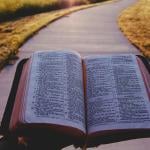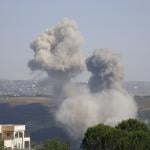This is an addendum to my reflections on wings a few weeks ago. Israel is sometimes conceived as a four-cornered land (Ezekiel 7:2), modeled after the four-cornered altar (Exodus 27:2; 38:2) or a four-cornered house (Job 1:19). Israelites are priests; their land is an altar where they make their daily, living sacrifices. Leaders form the corners of the land (Judges 20:2; 1 Samuel 14:38, where the word for “chief” is pinnah, “corner”). This is the source of the imagery of a... Read more















